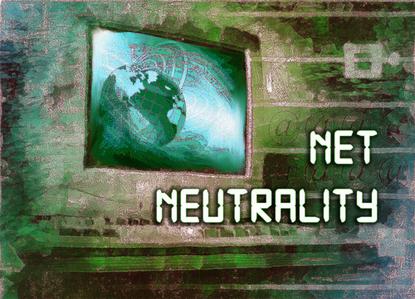ISP argues net neutrality rules violate its right to block content
- 01 August, 2015 04:24

ISPs argue against net neutrality rules in court briefs filed July 30, 2015.
The U.S. Federal Communications Commission's net neutrality rules violate the free speech rights of broadband providers because the regulations take away their ability to block Web traffic they disagree with, one ISP has argued.
The FCC's net neutrality rules take away broadband providers' First Amendment rights to block Web content and services, ISP Alamo Broadband argued to an appeals court this week. While not a new argument for ISPs, it's a curious one, given that most broadband providers have argued the regulations aren't needed because they promise never to selectively block or degrade Web traffic.
The FCC rules violate the First Amendment because they prohibit broadband providers' ability to engage in political speech by "refusing to carry content with which they disagree," wrote lawyers for Alamo Broadband, a small wireless ISP based in Elmendorf, Texas. Broadband providers, by carrying their own and other Web content, have the ability to "exercise editorial discretion," wrote lawyers with Wiley Rein, a Washington, D.C., law firm.
The net neutrality rules "strip providers of control over which speech they transmit and how they transmit it," the lawyers wrote. "The rules also compel the carriage of others' speech, including speech with which broadband providers disagree."
The FCC rules, which went into effect in June, prohibit broadband providers from charging fees to prioritize some Web traffic. The paid prioritization rule "prohibits broadband providers from elevating their speech over others' and selling the ability to prioritize some speech over other speech," Alamo's lawyers wrote.
AT&T and Verizon Communications have both made similar free speech arguments against the FCC's net neutrality rules in recent years, with AT&T making a First Amendment argument against the rules as recently as May.
But a joint court brief filed by AT&T, U.S. Telecom and other trade groups abandons the free speech argument, instead saying the FCC wrongly classified broadband as a regulated, common carrier service and failed to give broadband providers the proper notice that it would reclassify the service.
"Congress never envisioned entrusting the FCC with the extraordinary authority that the (regulation) purports to exercise or subjecting the Internet to intrusive, central-planner-style oversight," those groups said in their brief, filed Thursday.
The FCC's net neutrality rules are facing court challenges in the U.S. Court of Appeals for the District of Columbia Circuit from 11 plaintiffs, including four ISPs, six trade groups, and voice over IP entrepreneur Daniel Berninger.
Alamo and Wiley Rein didn't immediately respond to requests for comments on their brief. But Berninger, who filed a joint court brief with Alamo, said the First Amendment arguments may resonate with judges who otherwise have a limited understanding of the technical details of the case.
Alamo is "reacting to what the government is saying is the government's powers over the ISP," he said. "What are the government's powers in this case over networks?"
No ISP is saying it wants to "edit" Web content, Berninger added.
Digital rights group Free Press blasted this week's court filings by the plaintiffs. The filings represent the "same flimsy legal arguments broadband providers have been putting forth for more than a decade," Matt Wood, Free Press' policy director, said by email.
The First Amendment argument is more of the same, said Tim Karr, the group's senior strategy director. "We're not surprised that these lawyers claim that the rules violate Alamo's First Amendment right to edit and filter the content that crosses their networks," he said by email. "Yet First Amendment scholars, Congress and jurists have repeatedly explained that the supposed rights of these carriers surely cannot trump the rights of the people and companies who use these networks to speak."
Grant Gross covers technology and telecom policy in the U.S. government for The IDG News Service. Follow Grant on Twitter at GrantGross. Grant's email address is grant_gross@idg.com.

